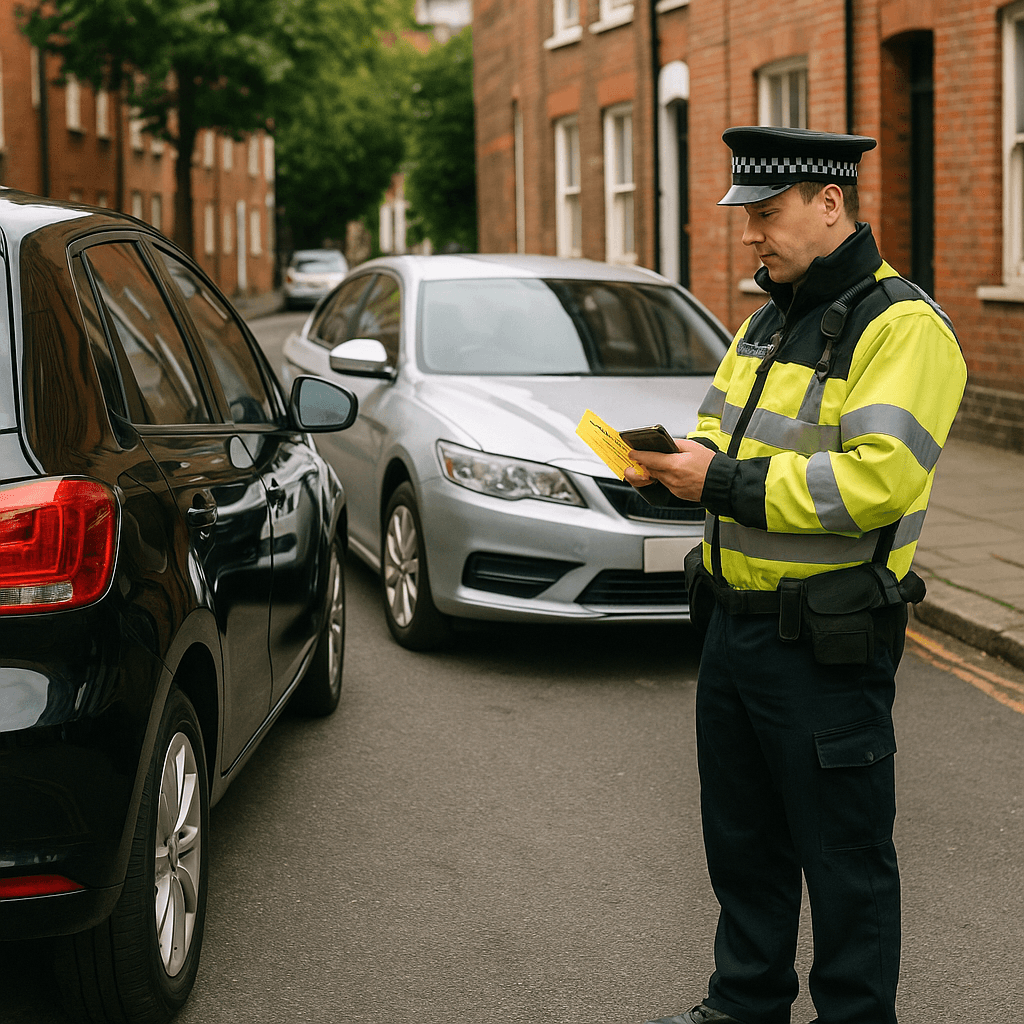
Understanding PCN Code 26: Double Parking in Special Enforcement Areas
Grace O'Sullivan
•4 min read
Understanding PCN Code 26: Double Parking in Special Enforcement Areas
Imagine this: You're running late for a meeting, and in the rush, you decide to double park on a quiet street. You dash off, thinking it'll only be a minute. But when you return, there's a Penalty Charge Notice (PCN) waiting for you. If this scenario sounds familiar, you're not alone. Today, we’re diving deep into PCN Code 26, which relates to double parking within special enforcement areas.
What is PCN Code 26?
PCN Code 26 is issued when a vehicle is parked more than 50 centimetres from the edge of the carriageway and not within a designated parking space. This often means double parking, which is a common violation, especially in busy urban areas. It’s crucial to understand the implications of this code, especially if you find yourself frequently driving in cities with special enforcement areas.
What are Special Enforcement Areas?
Special enforcement areas (SEAs) are locations where local councils have the authority to enforce parking restrictions more stringently. These areas are often densely populated or high-traffic zones where illegal parking can cause significant disruptions. Councils in cities like London, Manchester, and Birmingham have designated parts of their jurisdiction as SEAs to ensure smooth traffic flow and pedestrian safety.
The Consequences of Double Parking
When you double park, especially in an SEA, you not only risk receiving a PCN but also contribute to potential traffic chaos. Here’s what you might face:
- Fines: Expect a fine, often around £70, although it can vary by location. Paying promptly usually halves the fine.
- Towing: In severe cases, your car might be towed, leading to additional charges for retrieval.
- Points on Your License: While unlikely for a parking offense, repeated violations could lead to stricter penalties.
Why is Double Parking an Issue?
Double parking can obstruct traffic, block emergency vehicles, and create safety hazards for pedestrians and cyclists. This is particularly problematic on narrow streets or busy roads where every inch of space counts.
How to Challenge a PCN for Double Parking
Received a PCN and believe it was issued in error? Here’s how you can challenge it:
-
Review the Evidence: Councils must provide evidence of the violation, often in the form of photographs. Check these carefully.
-
Check Signage: Ensure that the area was clearly marked as a special enforcement area. Lack of proper signage might support your case.
-
Gather Your Evidence: Collect any evidence that supports your claim, such as witness statements or receipts with time stamps that might prove your case.
-
Submit Your Appeal: Most councils allow you to appeal online. Be clear and concise, providing all necessary evidence.
-
Await the Outcome: The council will review your appeal and respond. If unsuccessful, you can escalate to the Traffic Penalty Tribunal.
Pro Tip: Timing is crucial. Most councils offer a reduced fine if you pay or appeal within 14 days, so act quickly!
Tips to Avoid Double Parking Fines
Avoiding a PCN is always better than dealing with one. Here are some tips to stay in the clear:
- Plan Your Route: Use apps to find parking before reaching your destination.
- Know Your Areas: Familiarize yourself with SEA boundaries in your city.
- Look for Legal Spots: Always opt for designated parking spots, even if it means a short walk.
- Watch for Signs: Pay attention to signage indicating parking restrictions.
Real-World Scenarios
Let’s consider some common situations:
-
Busy High Street: You’re delivering a package and find no available parking. Instead of double parking, consider using a nearby loading zone or a legal parking bay even if it’s a few minutes’ walk.
-
School Runs: During school drop-off, streets get congested. Plan to arrive early to secure a legal spot or use designated drop-off zones.
-
Urban Deliveries: If you’re a delivery driver, double parking might seem inevitable. However, coordinating with businesses for access to private loading areas can save you from fines.
Next Steps
If you’ve faced issues with PCN Code 26 or want to be proactive about avoiding them, here’s what you can do:
- Educate Yourself: Keep up to date with parking rules in your area by visiting your local council’s website.
- Share the Knowledge: If you know someone who frequently parks in SEAs, share this guide with them.
- Stay Informed: New regulations and SEA expansions happen regularly. Sign up for local council newsletters to stay informed.
Understanding the implications of PCN Code 26 and how to handle them can save you time, money, and stress. By being aware and prepared, you can navigate the tricky world of urban parking with confidence. Safe parking!